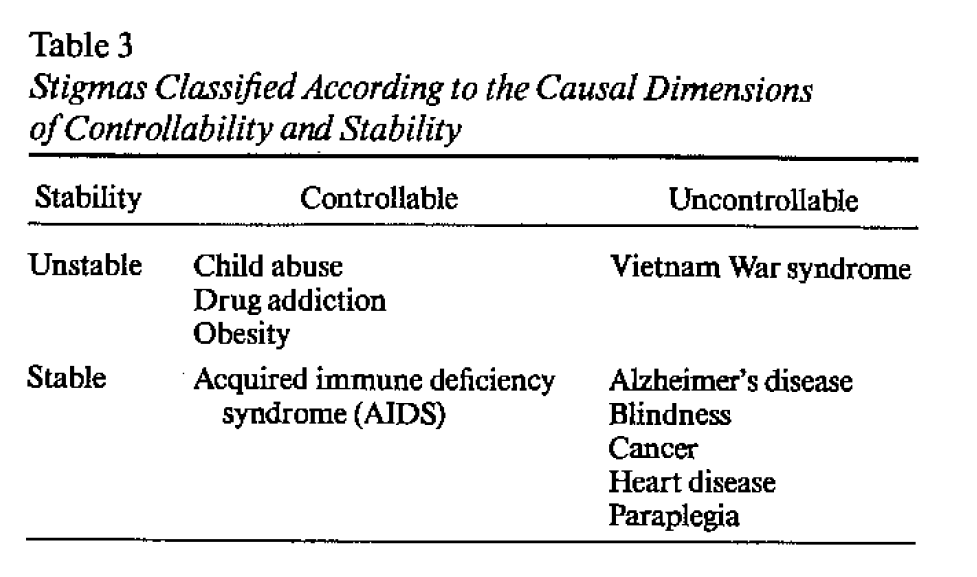Weiner 1988 - An attributional analysis of reactions to stigmas
Weiner, B., Perry, R. P., & Magnusson, J. (1988). An attributional analysis of reactions to stigmas. Journal of personality and social psychology, 55(5), 738.
Summary
Reactions to stigma are influenced by two dimensions: attributed controllability of the stigma and attributed stability of the stigma. Authors look at reactions to ten different stigmas, some physical handicaps and some mental-behavioral. Physically based stigmas (like paraplegia or cancer) were generally viewed as uncontrollable and temporally stable. Mental-behavioral stigma (like child abuse or drug addiction) were viewed as controllable and temporally unstable. Reactions to physical stigmas included affinity, pity, and likelihood to offer personal assistance. Reactions to mental-behavioral stigma included antipathy, anger, and decreased offers of personal assistance. Volitional attribution was higher for mental-behavioral stigma - stigmatized individuals were viewed as having a stronger agentic relationship to both the genesis and the continuance of the stigmatized condition. In other words, “your current condition is your fault” and “you could fix your current condition, if you wanted to.”
A second study manipulated the controllable / uncontrollable aspect of the stigmatized condition. For example, AIDS was portrayed as having been the result of a blood transfusion or as the result of a promiscuous sex life. This manipulation was successful in changing the attributed controllability of a condition. While attributing a mental illness to uncontrollable factors can have “positive consequences for self-regard,” it can also lower self-efficacy and inhibit growth (the twin-edged locus of control). Additionally, some stigmas were only slight changed in terms of responsibility attributions, inferring that each stigma carries with it a specific level of immutability, or, as stated by the authors, “Alzheimer’s disease and Vietnam War syndrome cannot be turned into sins, and child abuse cannot be transformed from a sin into a sickness.”
Application
Future research regarding stigmas needs to assess each stigma along both the dimensions of controllability and stability. Also of note, AIDS is treated as an interesting and unique case where public sentiment seemed to shift (see #8 in the discussion).
